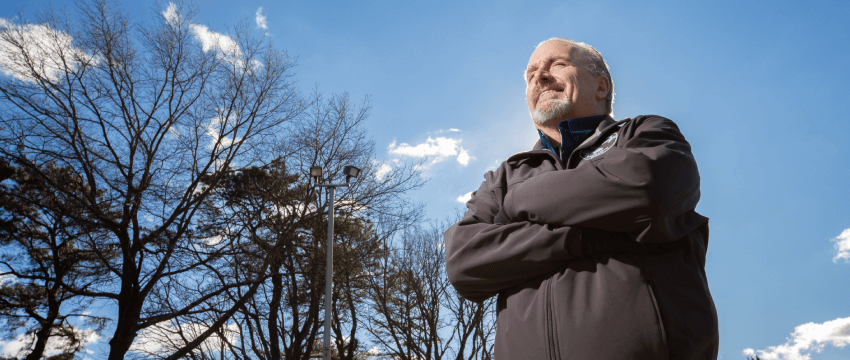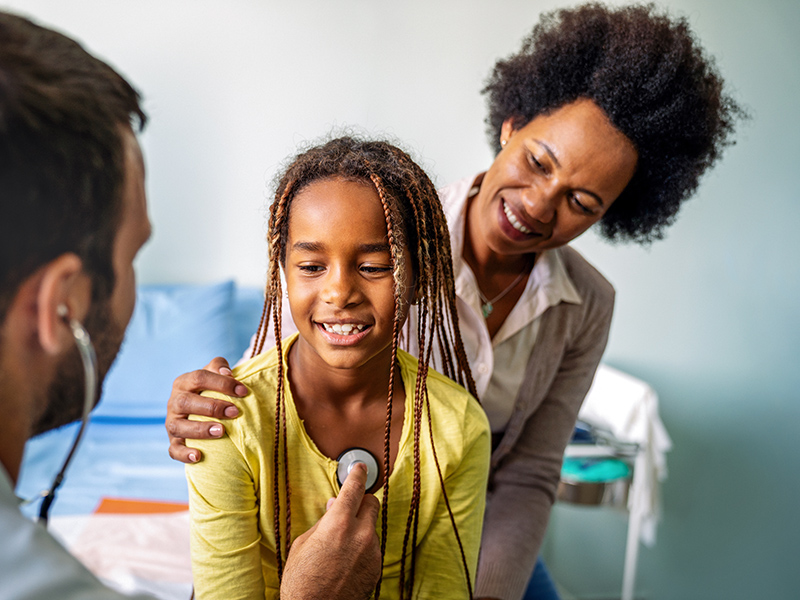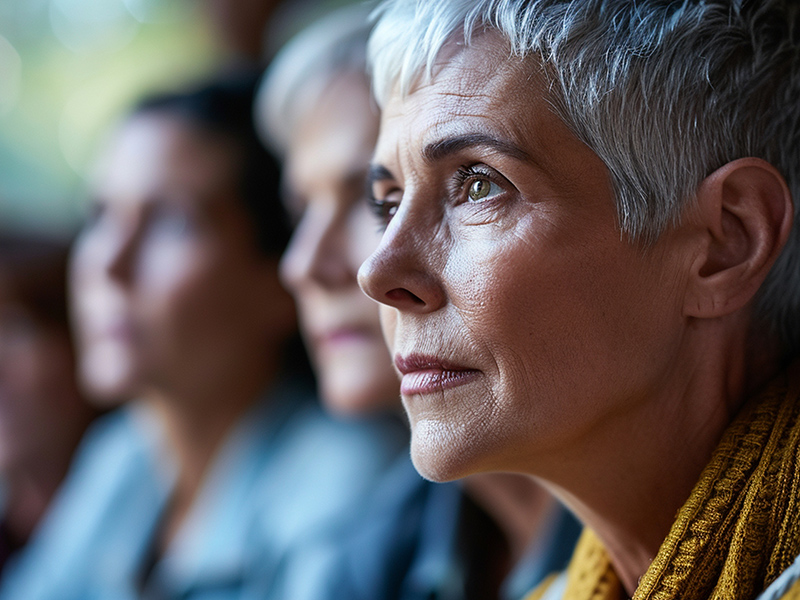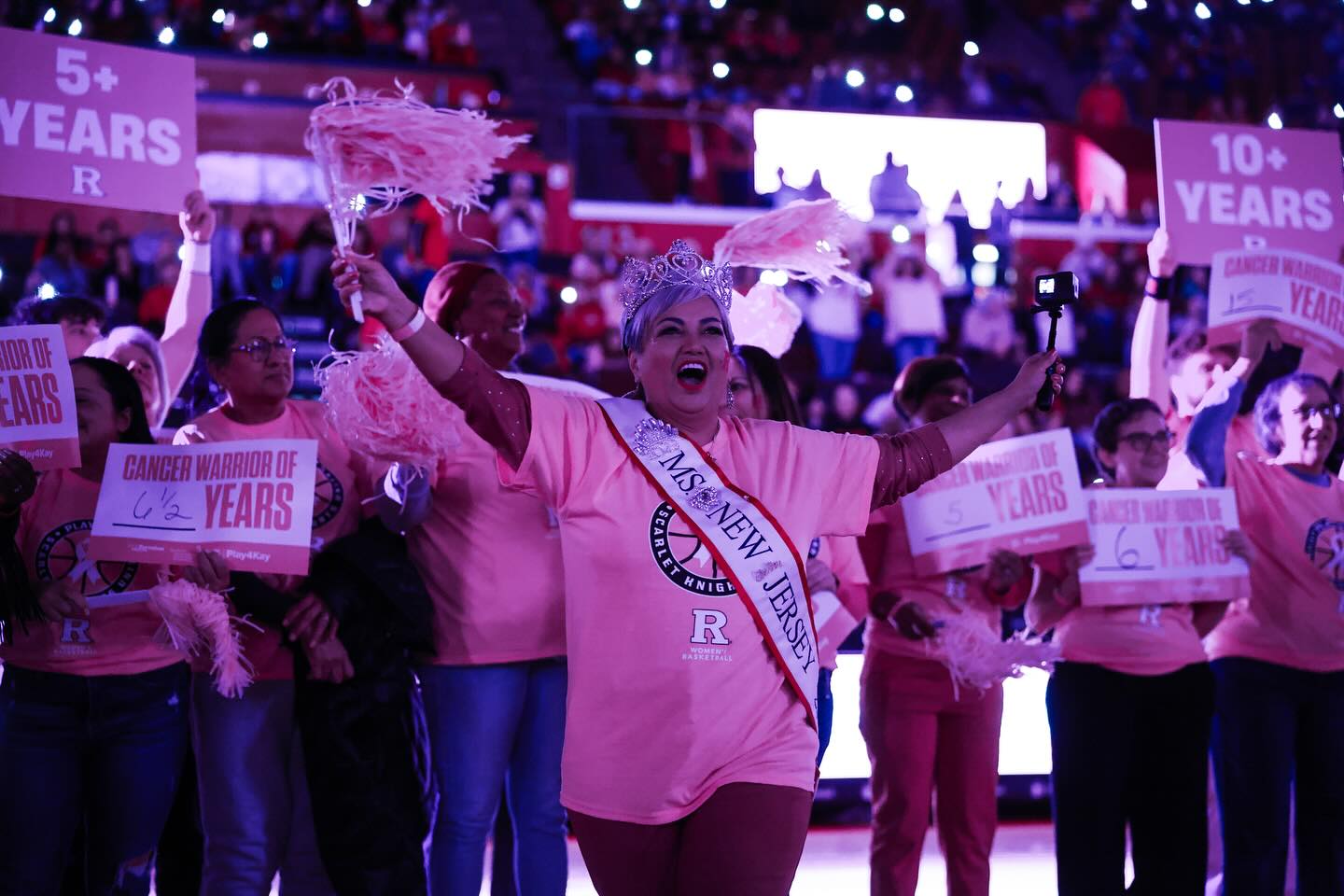
Cancer survivorship starts at the time of diagnosis, continues during and after treatment, and includes family members, caregivers, and all individuals who have been affected by a cancer diagnosis. Due to advances in detection, diagnosis, and treatment in cancer care, the number of cancer survivors is growing. The Rutgers Cancer Institute of New Jersey Center for Cancer Survivorship was created to address the unique needs of this growing population. Our mission is to provide education, social support, and research opportunities that extend beyond the treatment process for patients and their caregivers and loved ones.
Available Programs
The Center for Cancer Survivorship provides two distinct clinical programs to meet the needs of children and adults who have survived cancer.

The LITE Program
For childhood cancer survivors
The LITE Program provides long-term evaluation and support for childhood cancer survivors. Comprised of a team of specialists experienced in caring for this population, the program aims to meet the special needs pediatric cancer survivors by addressing late effects of therapy, intervening early, and providing ongoing education and long-term support services.

The Adult Survivorship Program
For adult cancer survivors
The Survivorship Program provides long-term evaluation, support, and health education for adult cancer survivors. Members of our team are available to provide supportive care to patients to promote adjustment to life after cancer and to provide assistance in adopting healthy lifestyle behaviors.
Survivorship Events

Play4Kay
Play4Kay unites sports teams across the nation to bring communities together and honor cancer warriors in the fight against all cancers affecting women. Rutgers University's Scarlet Knights hosts a participating basketball game annually with a mission to honor female cancer survivors and oncology healthcare team members.

Hockey Fights Cancer
Hockey Fights Cancer unites the hockey community in support of cancer patients and their families. As the official healthcare partner of the New Jersey Devils, RWJBarnabas Health is proud to take part in this initiative each year, highlighting and supporting cancer patients and survivors.
Survivors Day Celebration Videos
Frequently Asked Questions
Who is a cancer survivor and when am I a cancer survivor?
Different organizations define the term cancer survivor differently. The National Coalition of Cancer Survivorship (NCCS) first coined the term in 1986: “From the moment of diagnosis and for the balance of life, an individual diagnosed with cancer is a survivor.” Family members, friends and caregivers who are affected by a person’s diagnosis are also considered cancer survivors.
Cancer survivorship is the experience of living with, through and beyond the diagnosis of cancer. Today more people than ever are surviving cancer because of better treatments, prevention and early detection. As a result, much more attention is being placed on the long term adjustment of patients and their families to the physical, emotional and practical impacts of a cancer diagnosis. In response to these needs, many clinical programs that attend to the needs of patients after they complete cancer treatment are called “survivorship” programs.
What is the Survivorship Program?
Cancer survivors can face many challenges including physical, psychological, and social issues related to their cancer treatment. The health needs of cancer survivors are different from those who have never faced a cancer diagnosis. Survivor care focuses on monitoring for side effects of cancer treatments and improving your quality of life. The Survivorship Program at Rutgers Cancer Institute of New Jersey offers special follow-up care for cancer survivors who have been treated for cancer. Since each cancer and cancer treatment are different, your oncology team will decide when you should transition to the Survivorship Program.
What is survivorship care?
Survivors may be at risk for developing health problems as a result of their disease or the effects of cancer treatments. This is because most treatments not only get rid of the cancer, but also damage healthy cells. Follow-up care is important because it helps to find any changes in your health as early as possible. Follow-up care includes checking for the return of the cancer in the primary site (recurrence), the spreading of cancer to another part of the body (metastasis), or find a new (second) cancer. In addition, you will be monitored for after effects. After effects are side effects of treatment which are described as either long-term or late effects of cancer treatment. Long-term effects happened during cancer treatment and continue after treatment is over. Many long-term effects improve or even go away over time, such as fatigue, anemia, and anxiety. Some long-term effects may be permanent such as nerve damage. Late effects are delayed and can surface months to years after cancer treatment ends. When these problems are found early, they are easier to treat. Some late effects are permanent such as certain types of heart and lung disease, lymphedema, osteoporosis, or a second cancer.
What is survivorship care?
Since each cancer and cancer treatment are different, your oncology team will decide when you should transition to the Survivorship Program. Breast cancer patients typically transition two years after the end of active treatment (not including hormonal pills).
What can I expect during visits at the Survivorship Program?
Survivor care focuses on looking for and managing long term and late effects, monitoring for cancer recurrence, and teaching you how to optimize your health and quality of life. A personal survivor care plan summarizing your treatment and listing specific recommendations will be developed for you by the nurse practitioner who has expertise in the care of cancer survivors. During your visits to the Survivorship Program, your healthcare team will:
- Perform a complete physical exam and medical history
- Discuss ways to prevent new health problems
- Assess and treat any side effects that you may be experiencing
- Recommend appropriate health and cancer screenings
- Offer resources for coping, support and emotional health
- Refer you to special programs or resources for healthy eating, and exercising, quitting smoking
- Review and update your survivor care plan and forward it to your primary care doctor
What is a survivorship care plan?
The survivorship care plan is a document that summarizes your cancer history, including your diagnosis, the cancer treatments you received and any problems you experienced while receiving treatment. In addition, the plan includes the nurse practitioners specific recommendations for certain follow up tests and behavior changes that can optimize your wellness.
Why should I share my survivorship care plan with my primary care physician?
A primary care physician (PCP) is a physician/medical doctor who provides both the first contact for a person with an undiagnosed health concern as well as continuing care of varied medical conditions. A PCP is usually the first medical practitioner contacted by a patient, due to factors such as ease of communication, accessible location, familiarity, and increasingly issues of cost and managed care requirements.
It is important for your PCP to be aware of the cancer care you received and long term follow up plan for the purpose of maintaining continuity of care. Primary care is often called a patient’s “medical home”—where all of your specialty care is coordinated from. Providing a copy of your survivor care plan lets the primary care physician know what screenings are already scheduled and what surveillance is being managed by the Survivorship Program. This can avoid timely and costly duplications of diagnostic tests. In addition, the survivor care plan provides detailed information to help your PCP better assess if new medical conditions that arise for you are related to your past cancer care.
What is the difference between long-term and late-effects?
Long term effects are those that first occur during cancer treatment and persist after completion of primary therapy (e.g. scarring). Late effects are not apparent during primary treatment but arise later (e.g. second cancers from radiation or chemotherapy).
Available Support Services
Nutrition & Dietician
Exercise & Yoga
Genetic Counseling
Cardio-Oncology
Smoking Cessation
Lymphedema Therapy
Social Work for Counseling and Practical Concerns
Financial Services
Lung Cancer Screening
Fertility Services
Sexual Health
Life After Cancer: Our Areas of Focus
Recurrence and New Cancers
After completing treatment, it is important to monitor your body for signs of your cancer returning, or developing new types of cancer.
Long-Term and Late Effects
Survivors may still experience impacts from their treatments, even after beating cancer. Following up with your doctor and seeking help when needed is vital to maintaining your wellness.
Modifiable Health Behaviors
Maintaining healthy behaviors such as eating nutritious foods, exercising regularly, and not smoking can keep you feeling well and lowers the risk of recurrence.
Coordination of Care
We ensure that your doctors, nurses and additional staff are aligned and working together to provide the most comprehensive, patient-centered care to cancer survivors.


